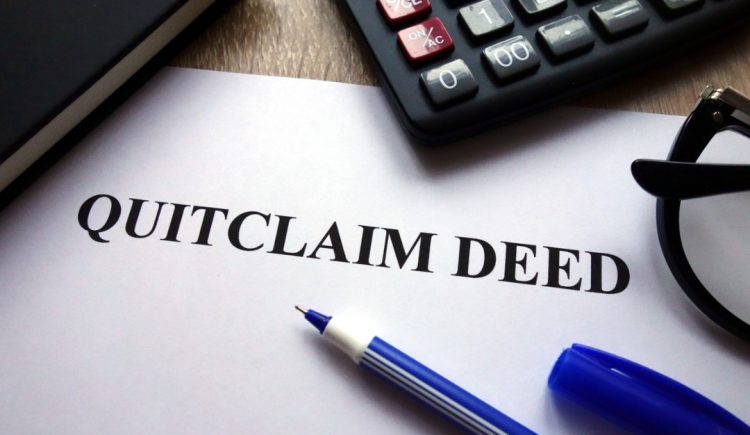A quitclaim deed is a legal document that transfers property between parties without an exchange of money. It can be used if parents want to transfer ownership of real estate to a child or if a couple gets married and one spouse wants to add the other’s name to the title. In a divorce settlement, a quitclaim deed can be used to remove one person’s name from the title.
A quitclaim deed can also be used to correct a defect in the title. For example, if a name was misspelled on a legal document or there is a claim or lien that raises questions about who legally owns the property, a quitclaim deed can resolve the issue.
Potential Issues That Can Arise With a Quitclaim Deed
When a quitclaim deed is signed, a title search is not conducted to verify that the person transferring ownership (the grantor) is, in fact, the owner of the property. A quitclaim deed doesn’t guarantee that a property is free of liens or other issues that could affect its title. If the grantor doesn’t have a legal interest in the property, the grantee will receive nothing from a quitclaim deed and won’t have any legal recourse against the grantor.
If the grantor has a mortgage and uses a quitclaim deed to transfer ownership of the property to another party, the grantor will still be responsible for the mortgage. If the loan has a “due-on-sale” clause, the outstanding balance will be due when ownership is transferred, even though the grantor didn’t get any money from the transfer.
State tax laws differ. In some places, when property is transferred to another party as a gift, the recipient has to pay taxes.
Trust Is a Key Factor
A quitclaim deed is typically used when the individuals involved in the transaction know and trust each other. If both parties are confident that the grantor is the legal owner of the property, a quitclaim deed may be appropriate. If, however, the parties don’t know and trust each other, legal issues may arise later on.
Get Legal Advice
Consult an attorney before signing a quitclaim deed. If there is a title issue and a quitclaim deed doesn’t resolve it, problems may come up years later. You also have to consider the tax implications. An attorney who is familiar with the laws in your state can tell you if a quitclaim deed is your best option and explain alternatives.
If you decide to sign a quitclaim deed, it will have to comply with your state’s laws. The document will have to include certain pieces of information and may require a specific format. State laws differ on the question of whether the grantor and grantee both have to sign a quitclaim deed or whether the signature of the grantor alone is sufficient. After you sign a quitclaim deed, you will need to register it with your local government by filing a copy with your county clerk or county recorder.











